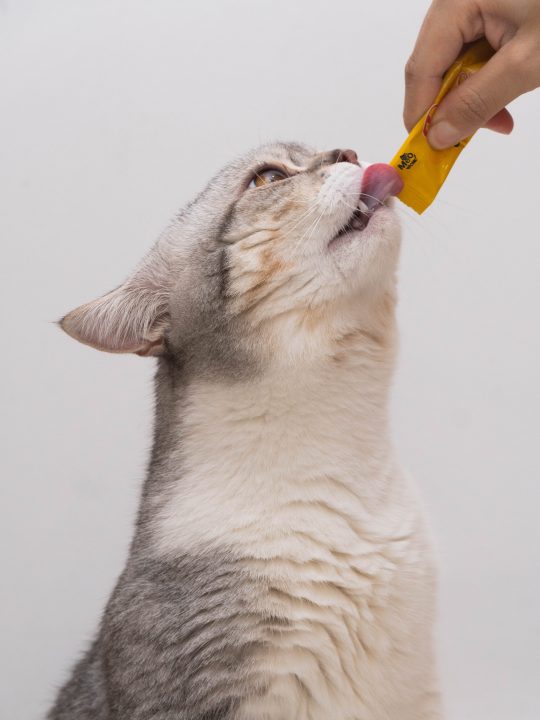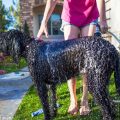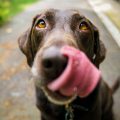Like people and all other living things, cats need a specific amount of calories to survive. Though cats do tend to sleep throughout the day to preserve energy, the more they move, the more calories they burn. Therefore, how many calories does a cat need per day? How do you know when a cat is eating too much or too little calories?
Let’s find out.

Table of Contents
- How Many Calories Does a Cat Need?
- How Many Calories Should I Give My Cat?
- Calorie Counting With Cats
- FAQs
How Many Calories Does a Cat Need?
There are several factors that determine how many calories a cat needs per day.
Again, cats are similar to people. Their age, weight, gender, and activity level all influence how much they need to eat. Generally, an average adult cat needs about 20 to 34 calories for every pound. In other words, a 10 pound cat needs about 200-340 calories of food.
This is why you need to consider two very important key factors: age and activity.
Your Cat’s Age
Kittens require tons of food to keep them zipping around rooms and growing up big and strong. Plus, kittens grow rapidly during the first 4 months of age. During that period, a kitten requires double the calorie requirement of an adult cat. They let you know, too, that they are in need of food by mewling constantly.
While that initial spurt of voraciousness diminishes after 4 months, kittens still need more than an adult cat. You can gradually taper off their food around 8-12 months as their weight and activity levels mature.
Your Cat’s Activity Level
Once your cat is past their first birthday, activity becomes the main contributor to calorie needs. An active cat is going to burn 3-4 times more calories than one that is more sedentary, for instance.
Moderately active cats burn twice as much energy as a sedentary cat. Even a cat that gets twenty minutes of play then sleeps all day burns more than the laziest of felines.
Keep in mind that age influences activity levels. Older cats tend to have far less spunk than kittens and, therefore, consume less food. Another thing that influences activity level as well as calorie requirement is whether your cat has been fixed. A cat that has yet to be spayed or neutered is going to burn a slightly higher number of calories than a fixed one.
How Many Calories Should I Give My Cat?
You can use a cat calorie calculator, as there are many online, or you can follow the advice listed below.
A 5 pound cat needs about 207 calories per day for weight maintenance. If they are considered underweight, you need to feed them around 220 calories to increase their size.
On average, a 12 pound cat needs an average of 400 calories per day. If the vet tells you that your 12 pound cat should be 8-9 pounds, then you need to cut those calories by half. To gain weight, a 12 pound cat needs around 425 calories.
Just remember to factor in age and activity level—not just their weight!
Calorie Counting With Cats
How many calories does a cat need? Around 20-34 calories per pound. 20 calories per pound is when they need to lose weight, while the upper end of the range is for the most active cat. Judge how much food to give your cat based on their age and activity level then make adjustments from there.
Learn more about your feline friend in our blog post: Interesting Facts about Cats.
FAQs
As a general guideline, the caloric needs for a typical adult indoor cat can range from around 180 to 250 calories per day. However, it’s important to note that this is a general estimate, and it’s recommended to consult with your veterinarian to determine the specific caloric needs of your individual cat.
The caloric needs for an adult, moderately active cat are typically around 50-70 calories per kilogram of body weight per day. However, this can vary. For example, a 5 kg (11 lb) cat might require approximately 250-350 calories per day. Kittens, pregnant or lactating cats, and senior cats may have different caloric needs. It’s important to consult with your veterinarian to determine the appropriate daily caloric intake for your specific cat.




